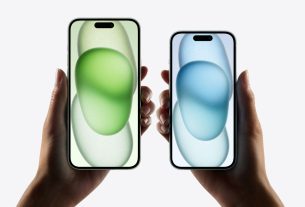Prophesee, a Paris-based startup that makes camera chips influenced by how the human eye works, announced earlier this week that it has finalised a multi-year deal with Qualcomm for integration into the smartphone technology giant’s product. Prophesee is establishing a development kit to assist in the integration of Metavision sensor technology into devices with next-generation Snapdragon systems. The “event-based” Metavision technology claims to allow smartphone cameras to capture fast action. The announcement was made in conjunction with Qualcomm at the Mobile World Congress 2023 event in Barcelona.
Prophesee’s camera chips will be used in the development of smartphone technology by both companies, the Paris-based start-up announced. The cutting-edge chips, which are inspired by the human eye, process only modifications in the scene, such as movement or light, instead of the entire image frame. Prophesee’s camera chips are faster and involve less computing energy because of this distinctive property, which makes them suitable for use on smartphones.
Each pixel in the Metavision sensor contains a logic core that allows it to function as a neuron, the company explains. They each activate intelligently and asynchronously based on the number of photons they detect. An event occurs when a pixel activates itself.
Prophesee’s co-founder and CEO, Luca Verre, described that their camera chips use pixels that only transmit data to the processing unit when there is an alteration. Pixels that detect no change remain unchanged.
The most recent chips by Prophesee have one million pixels. Qualcomm intends to use the extra Prophesee chip in alongside traditional camera chips in a template for smartphones that will be released at Mobile World Congress in Barcelona.
The Prophesee chip will be subcontracted for production to Sony Group. Verre stated that “we are really combining both key players in the space,” referring to Qualcomm and Sony, but did not reveal the financial conditions of the agreement. The chips are scheduled for large-scale production next year when they will be consolidated into smartphone units.
The extra Prophesee chip, the announcement clarifies, will help resolve some of the blurry visuals in current smartphone camera processes. The chips are projected to enhance customer experiences and assist in the creation of innovative smartphone technologies by boosting image quality.
For details of the latest launches and news from Samsung, Xiaomi, Realme, OnePlus, Oppo and other companies at the Mobile World Congress in Barcelona, visit our MWC 2023 hub.
Featured video of the day
MWC 2023: Here’s What Makes the OnePlus 11 Concept Smartphone One of the Coolest
